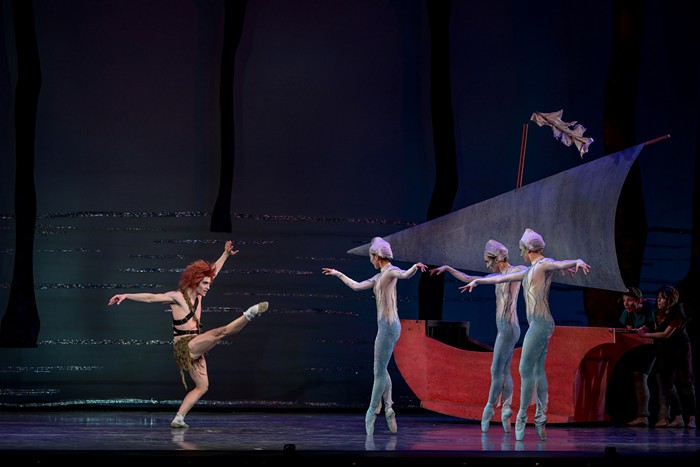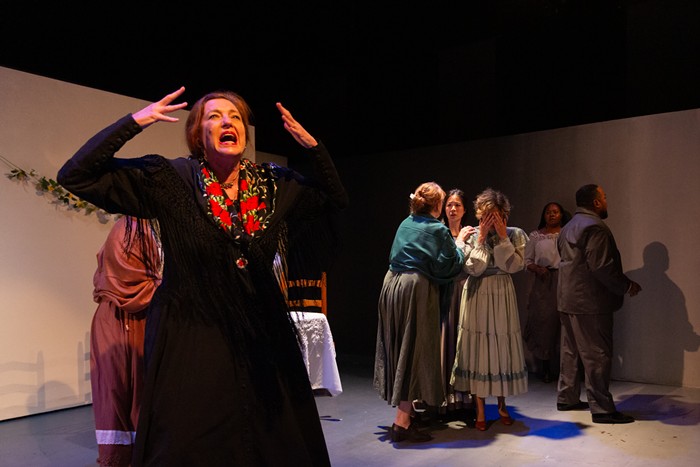THEATRE VERTIGO is a company in transition.
Some of the best-known longtime company members are gone—Darius Pierce, Amy Newman, Gary Norman—and Aloha, Say the Pretty Girls is the last full production Vertigo will stage in their longtime home at Belmont's Theater! Theatre!, which closes at the end of the season. Next season, Vertigo moves into the tiny Shoebox Theater, with vague plans to eventually launch a new Southeast venue to replace Theater! Theatre!
And so, while the Christmas setting of their current show feels a bit incongruous, the timing starts to make sense if you think of Pretty Girls as both a goodbye and a hello.
Aloha, Say the Pretty Girls is about what it means to become an adult: the search for real, sustainable relationships; the acceptance of responsibility for one's lot in life. It explores the subject through a series of loosely connected and periodically absurd vignettes, some more compelling than others. A man dumps his stoner girlfriend; a crazy actress-turned-temp bombs her attempts to find a real job; a woman falls in love with one person after another, in love with being in love.
The show's first act deals with characters rejecting responsibility, in one form or another; the second act represents the gradual, reluctant adoption of adult roles. On opening night, the show didn't really kick into gear until after intermission—in part because the young-and-dumb tendencies that characters display in the first act are translated as borderline caricature, and not always amusingly so. I wouldn't be surprised if the first act still saw some tweaks—hopefully including toning the high-strung, screechy character of Vivian (Brooke Calcagno) down a few decibels, and helping actors to ground their characters in something other than goofy mugging.
The show starts to make sense in act two, as the actors reveal more nuanced sides of their characters. Britt Harris brings level poise to her role as the only "adult" in the show—in the wrong hands this exemplar of shit-togetherness could easily be preachy or annoying, but Harris conveys a sort of big-sister competence. Beth Thompson is wholly in control of her character's arc, from reckless and flaky to grounded and in love; and it's nice to see a show feature some gay characters who aren't immediately identifiable as such (no swishy stereotypes here).
Pretty Girls is an imperfect production of an imperfect script—but as the company braces for the next step, their final show on Belmont embodies Vertigo's ongoing interest in finding challenging, work that non-traditional theater audiences can relate to.



















